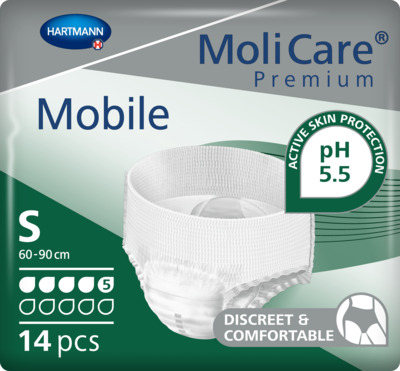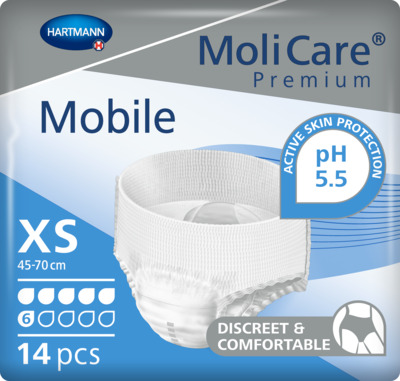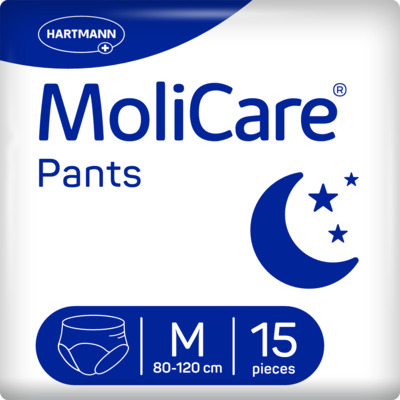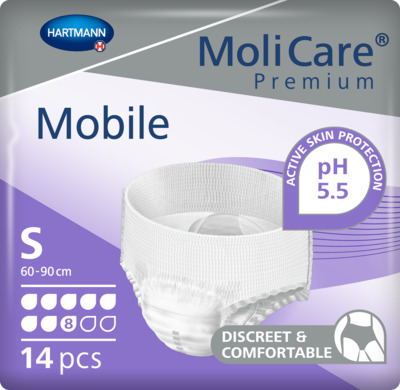Active living
Ten Foods And Drinks That Irritate The Bladder
Bladder irritation can disrupt your daily life, leading to sudden urges to urinate, increased frequency, and uncomfortable leakage. Understanding the triggers for this irritation and how to manage it is essential for those affected. In this article, you will learn about bladder irritant foods and drinks, the effects they can have, the potential signs of underlying issues, and most importantly, what they can be substituted with to regain your wellbeing.

What is Bladder Irritation?
Bladder irritation can disrupt your urinary habits and lead to uncomfortable symptoms, which are often caused by problems with your diet. Much like any sensitive organ, the bladder can react when exposed to certain irritants. Here's a closer look at the symptoms you may have if your bladder is irritated:
Urgency: One common sign of bladder irritation is a sudden and strong urge to urinate. This urgency can be intense and may prompt immediate trips to the toilet.
Frequency: People experiencing bladder irritation may find themselves needing to urinate more frequently than usual. The constant urge to empty the bladder can be bothersome and inconvenient.
Leakage: Bladder irritation can also lead to leakage, which many find distressing, embarrassing, and may cause those affected to feel anxious about leaving the house. If you do experience leakages, you could consider using our large pads and fixation pants which are available in a variety of shapes and sizes.
Lower abdominal discomfort: Bladder irritation can cause pain in the lower abdomen, causing discomfort and distress. This discomfort has been compared to feeling like the bladder is being squeezed or wrung out. The symptoms may resemble those of a urinary tract infection (UTI), even in the absence of an infection.
Furthermore, bladder pain can be caused by other underlying conditions, such as interstitial cystitis, a type of bladder pain syndrome. Regrettably, these conditions can be challenging to treat, and it may take time to find a suitable cure. Symptoms can also fluctuate based on an individual's dietary choices.
You can be reassured that bladder irritation is a common issue and is not necessarily a medical emergency. However, in certain instances, it may be a sign of underlying problems within the urinary tract. These issues may include:
Urinary tract infections (UTI): UTIs can cause temporary discomfort and create an urgent need for frequent toilet trips.
Interstitial cystitis (IC): This chronic condition results in swelling of the bladder wall, leading to ongoing bladder discomfort and pain.
Tumours and cancer: In very rare instances, bladder irritation may be an indicator of a tumour in the bladder or urethra, potentially signifying urinary tract cancer.
Ten food & drinks that irritate the bladder
Ten Foods and Drinks That Can Cause Bladder Irritation
The relationship between your dietary choices and bladder health is more comparable than you might think. Certain foods and drinks can cause bladder irritation, setting off a chain of symptoms that can disrupt your daily life.

1. Caffeinated drinks:
If you begin your day with a cup of coffee, tea, or even an energy drink, be aware that caffeine is a common cause of bladder irritation, which can affect bladder activity and lead to an increased sense of urgency and more frequent trips to the toilet. Additionally, caffeine can potentially cause incontinence in different age groups. Even if you drink decaffeinated beverages, they can still contain a small amount of caffeine, which you should be aware of. Instead, you could try these bladder-friendly drinks that will bring other benefits to your body aside from not irritating the bladder.
2. Carbonated drinks:
Carbonated soft drinks, including lemonade, and soda water, can potentially exacerbate symptoms of an overactive bladder (OAB). Soft drinks containing both carbonation and caffeine, including coke, should be approached with caution. Champagne, which combines carbonation with bladder-stimulating alcohol, can also irritate the bladder.
3. Artificial sweeteners:
Found in most dietary soda drinks and numerous "low-sugar" products like sweets, baked goods, chewing gum, and breakfast cereals, artificial sweeteners can be bladder irritants too. If you've been experiencing symptoms of bladder irritation, consider reducing your intake of artificial sweetener products.
4. Alcohol:
Whether you enjoy the occasional beer, wine, or spirit, alcohol can have a pronounced effect on bladder function. It can irritate the bladder and interfere with signals from the bladder to the brain, potentially leading to accidental leaks. To ease bladder-related discomfort, you should limit your alcohol consumption in line with NHS guidelines. And if this fails, limit drinking alcohol entirely, as alcohol can impact both your bladder and bowels.
5. Acidic foods:
Acidic foods, such as citrus fruits and tomatoes, are known to cause bladder irritation too. Oranges, limes, lemons, grapefruits, and tomato-based products like pasta sauces, pizza sauces, ketchup, and salsa, all contain substantial amounts of citric acid. If you're sensitive to bladder irritation, be wary about consuming these foods.
While it's evident that certain foods and drinks can irritate the bladder, the triggers for bladder symptoms can vary from person to person. What affects one person may not necessarily affect another in the same way. As a result, identifying the precise cause of your discomfort is the first step in finding a solution.

6. Chocolate:
Chocolate contains a hidden amount of caffeine (depending on the variety of chocolate that you consume), but on average, a bar of chocolate contains roughly a quarter of the amount found in a typical cup of coffee. If drinking caffeine is irritating your bladder, you might explore alternatives like white chocolate, which is caffeine-free.
7. Spicy foods:
Spicy foods, such as peppers and certain sauces, can irritate your bladder. Even if you’re a fan of spicy foods, you should be cautious here as spicy foods can affect people differently. While you don’t need to eliminate spicy foods from your diet, you could try experimenting with different ones to see which ones are irritating your bladder.
8. Processed foods:
Processed foods often contain artificial ingredients, such as flavourings and preservatives, which can exacerbate bladder irritation and worsen symptoms. If you are dealing with an overactive bladder, prioritising a balanced diet that includes fresh, natural foods like vegetables and whole grains is especially important in eliminating as many processed foods as possible from your diet.
9. Onions:
Like spicy and acidic foods, raw onions can trigger bladder irritation issues and intensify the urge to urinate. If you enjoy onions in your meals, consider cooking them before eating them to minimise their potential adverse effects on your bladder.
10. Cranberries:
Some studies suggest that cranberry juice is an effective remedy for urinary tract infections, but it can still contain acidic features. This, of course, depends on how much cranberry juice you consume, as it can help to wash away bacteria from the bladder wall. Similar to tomatoes and citrus fruits, cranberries have the potential to irritate your bladder and provoke urge incontinence. Try drinking more water instead.
Balancing Your Water Intake:
As mentioned, drinking enough water will help to wash out any bladder irritants that you may have consumed over the last couple of days, and can be used to manage an irritated bladder. It is important to be aware that insufficient hydration can lead to concentrated and acidic urine, increasing bladder irritation and potentially causing an increased need to visit the toilet. Be sure to consult your healthcare professional, who can offer personalised advice tailored to your diet and may offer advice including reducing drinking fluids a couple of hours before going to sleep.

Keep a Food Diary:
Due to the various ways these bladder irritant foods and drinks can affect people, you should note down everything you consume in a food diary. Doing this will help to pinpoint your specific triggers for your healthcare professional; also note down any symptoms you experience afterwards. This valuable tool can help you identify patterns and connections between your diet and your symptoms, guiding you towards more informed dietary choices.
Awareness Of Foods And Drinks That Irritate The Bladder
In conclusion, knowing which foods and drinks irritate the bladder can help you avoid certain health problems and, therefore, adjust your diet accordingly to benefit your lifestyle and body. While it may be okay to consume these foods and drinks in moderation, they should be avoided if they are causing consistent problems for your body.
FAQs
How do you soothe an irritated bladder?
Drinking plenty of water, avoiding irritants like caffeine and alcohol, and practising pelvic floor exercises can help soothe an irritated bladder.
What foods calm an irritated bladder?
Foods like watermelon, cucumber, and oats can be soothing for an overactive bladder. It's also essential to maintain a balanced diet.
Are bananas a bladder irritant?
Bananas are generally considered bladder-friendly and are not known to be irritants.
Is tea a bladder irritant?
Some teas, especially those containing caffeine like black or green tea, can be bladder irritants for some individuals. Herbal teas are often a safer choice for those with sensitive bladders.
Sources
NHS. (n.d.) Alcohol Units. NHS. [online] Available at: https://www.nhs.uk/live-well/alcohol-advice/calculating-alcohol-units/ [accessed 09/11/23]
Holland & Barrett. (2022) 6 Hidden Sources of Caffeine. Holland & Barrett. [online] Available at: https://www.hollandandbarrett.com/the-health-hub/sports-nutrition/sports-supplements/caffeine/six-hidden-sources-caffeine/ [accessed 09/11/23]

MoliCare® Premium Mobile 5 Drops
<h2>MoliCare Premium Mobile 5 Drops: The Solution for Incontinence</h2> <p>Experience the ultimate solution for managing moderate to very severe incontinence with MoliCare® Premium Mobile 5 Drop incontinence pants. These innovative pull-on pants provide the look and feel of ordinary underwear, ensuring discreetness and exceptional protection.</p> <p>With your comfort and security in mind, the discreet and adaptable design of MoliCare® Premium Mobile pants conforms to the shape of your body.</p> <p>The pH-balanced formulation ensures effective skin protection, preserving the natural balance and health of your skin. Featuring a three-layer absorbent core, these pants lock away urine, providing dryness and ensuring you stay comfortable and confident. The anti-leakage system offers extra security and protection, preventing any leaks or accidents. Odour neutralisers are added to provide long-lasting freshness and confidence, eliminating unwanted odours.</p> <h2>High Absorption Capabilities</h2> <p>MoliCare® Premium Mobile 5 Drop pants provide superior absorption capabilities, making them the perfect choice for managing moderate incontinence. With varying levels of absorbencies available, you can choose the one that suits your specific needs. The breathable fabric, anatomical shape, and absorbent core keep moisture away from your body, keeping your skin dry. Enjoy the convenience of easy removal with the quick tear-open sides of MoliCare® Premium Mobile pants, which is even suitable for those with severe bladder weakness!</p> <h2>Choosing your Size</h2> <p>Measure waist at the largest width between the waist and hips. Select the product size based on the below sizing.</p> <p>Small: 24-35 inches (60-90cm)</p> <p>Medium: 31-47 inches (80-120cm)</p> <p>Large: 39-59 inches (100-150cm)</p> <p>Extra Large: 51-67 inches (130-170cm)</p> <p>Fast, reliable delivery service for all your essential <a href="https://www.hartmanndirect.co.uk/" style="color:#0563c1; text-decoration:underline">HARTMANN Direct</a> incontinence products straight to your door. Take advantage of our convenient online ordering system and benefit from our price match promise, along with free delivery on orders over £50. Our friendly customer service team is here to assist you in selecting the right product for your needs.</p> <p> </p>
MoliCare® Premium Mobile 6 Drops
<h2>Discreet and comfort</h2> <p>Say goodbye to worries about unpleasant odours. Our Premium Mobile 6 drop incontinence pants are equipped with odour neutralisers, ensuring long-lasting freshness and confidence, so you can go about your daily activities with assurance.</p> <p>Experience superior absorption with our pull-on disposable pants in Premium Mobile 6 drop, which serve as a reliable and convenient solution for managing moderate to very severe incontinence. The discreet underwear-style fit offers you the freedom and flexibility you desire, while delivering unmatched dryness and comfort.</p> <p>Crafted from breathable fabric, the anatomical shape and three-layered absorbent core effectively keep moisture away from your body, ensuring a calm and dry sensation for your skin. The two-part cuffs act as a powerful shield against leakage, while the odour neutralisers keep any unwanted odours at bay, allowing you to live your life to the fullest.</p> <p>Removing the pants is a breeze, thanks to the quick tear-open sides, making them easier to use and convenient. Rest assured, our Premium Mobile 6 drop pants are effective even for very severe bladder weakness, providing the utmost protection you need.</p> <h2>Choosing your Size</h2> <p>Measure waist at the largest width between the waist and hips. Select the product size based on the below sizing.</p> <ul> <li>Extra Small: 18-28 inches (45-70cm)</li> <li>Small: 24-35 inches (60-90cm)</li> <li>Medium: 31-47 inches (80-120cm)</li> <li>Large: 39-59 inches (100-150cm)</li> <li>Extra Large: 51-67 inches (130-170cm)</li> </ul> <p>For further assistance, do not hesitate to contact our team today at 0800 028 9470, and be sure to order your MoliCare Premium Mobile 6 drop pants today.</p>
MoliCare Pants for Night
<h2>Incontinence pants for protection at night </h2> <p>Don’t let incontinence disturb your sleep. MoliCare® Pants Night is the simple and affordable solution for reliable protection at night. </p> <p>MoliCare® Pants Night incontinence pants for adults, also known as pull up panties, are worn like regular underwear and are available in sizes M and L. The absorbent core inside the incontinence pants quickly traps urine and ensures a pleasantly dry feeling on the skin even during the longer wear time at night. </p> <p>MoliCare® Pants Night help to keep intimate skin healthy by maintaining its natural pH value. At the same time, the absorbent core neutralises unpleasant odours. Soft and close-fitting double cuffs at the leg openings also prevent leakage. </p> <p>MoliCare® Pants Night are designed for reliable protection at night. You can recognise the nighttime incontinence pants by the moon on the packaging. They complement MoliCare® Pants Day incontinence pants which provide discreet protection during the day. </p> <h2>Who are MoliCare® Pants Night suitable for? </h2> <p>MoliCare® Pants Night are suitable for women and men with moderate incontinence who are looking for a reliable solution for the night. They lose up to 200 ml of urine at night and cannot always reach the toilet in time. <br /> <br /> They can go to the toilet independently or with a little help. MoliCare® Pants Night are suitable for urge incontinence. </p> <p>Highest wearing comfort and still affordable: MoliCare® Pants Night </p> <p>Thanks to fast absorption and odour-control, the incontinence pants provide reliable, comfortable protection while you sleep. MoliCare® Pants Night are extremely comfortable to wear. The soft, noiseless material means you will hardly notice the difference to regular underwear. </p> <p>MoliCare® nighttime incontinence pants are very skin-friendly. The slightly acidic pH value in the intimate area protects the skin from external contaminants such as urine. MoliCare® Pants Night help to maintain this natural pH value and protect the skin. </p> <p>You usually need no more than two MoliCare® Pants Day inco pants during the day and one pair of MoliCare® Pants Night incontinence pants for the night. This gives you a low cost yet high-quality round-the-clock supply of incontinence pants from HARTMANN Direct. </p> <h2>We are HARTMANN </h2> <p>MoliCare® is HARTMANN’s extensive range of continence care products. For over 40 years, we have been developing effective, reliable products that help people manage the challenges of living with incontinence. Our aim is to provide the right solution for every need. </p> <h2>Choosing your Size</h2> <p>Measure the waist at the largest width between the waist and hips and select the product size.</p> <p>Medium: 31-47 inches (80 – 120cm)</p> <p>Large: 39-59 inches (100-150cm)</p> <p> </p> <h2>Delivery service</h2> <p>Fast, reliable delivery service for all your essential <a href="https://www.hartmanndirect.co.uk/">HARTMANN Direct</a> incontinence products straight to your door. Take advantage of our convenient online ordering system and benefit from our price match promise, along with free delivery on orders over £50. </p> <p><strong>Need more help?</strong> Our friendly customer service team are waiting to help you choose the right product – call 0800 028 9470.</p>
